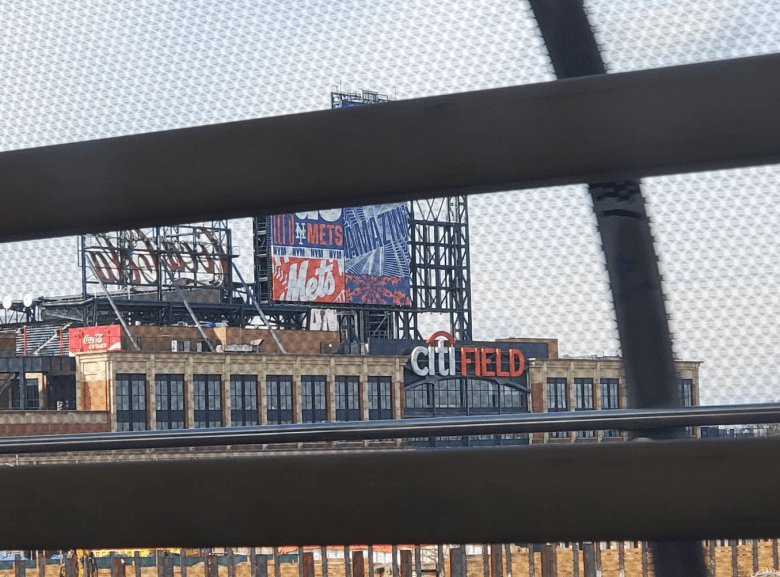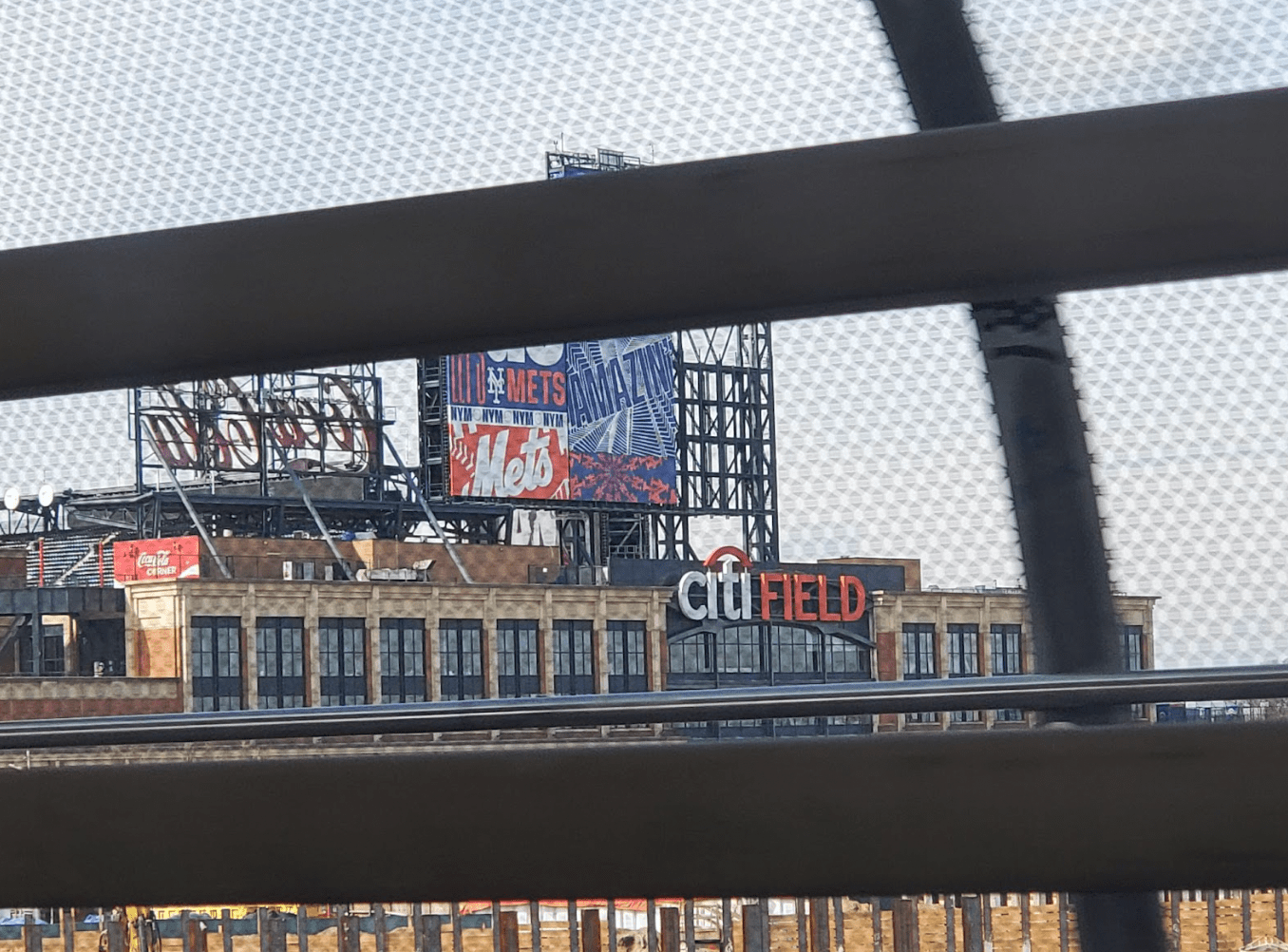Billionaire Steve Cohen pledged $5 million in addiction prevention and related services in Flushing if his proposed casino complex becomes a reality. Critics say a casino will cause gambling problems in the community.
A debate between urban development and community welfare is growing in the Flushing, East Elmhurst, Corona, and Willets Point areas of Queens after residents voiced concerns about a plan that could reshape their neighborhood’s public health landscape.
A proposal from Mets owner Steve Cohen is at the center of the controversy. He wants to build an $8 billion casino and entertainment complex on public parkland at Citi Field. However, community members worry the project, known as Metropolitan Park, could cause several problems, ranging from less access to green space to worsening issues with flooding and sewage, human trafficking, and addiction.
Among the behavioral health concerns, gambling addiction had the biggest spotlight at a recent town hall held by Senator Jessica Ramos.
In a 2020 survey, the New York State Office of Addiction Services and Supports found that less than 1% of New Yorkers are what’s considered problem or pathological gamblers. However, that report was published before the 2022 changes to state gambling laws, which legalized mobile sports betting. (A bill that would legalize online casino gaming in New York state is pending.)
Epicenter looked into why, despite the reportedly low prevalence of problem gambling, this concern is so pressing among critics of Cohen’s plan.
Cohen’s promise vs. addiction realities
Cohen’s plan promises $25 million for community health programming, including $5 million for addiction and mental health services in Flushing. But community members question the rationale behind opening a casino they worry could exacerbate public health issues, essentially creating the very problems this funding aims to help.
The connection between addiction and geographic proximity
Studies have found proximity to casinos and other gambling sites does enable people who are already addicted or vulnerable to addiction. From a lack of clocks and natural light to cashless machines, casinos are designed to make people stay longer and spend more, gambling experts say.
One town hall attendee, Huanjie Li of the nonprofit organization MinKwon Center for Community Action, cited research that showed residents within 10 miles of a casino are twice as likely to have a gambling addiction. An older study found that the 10-mile proximity is linked to a 90% increase in the odds of being a pathological or problem gambler.
The limits of personal agency in gambling addiction
In contrast to Li’s perspective, not all attendees shared the belief that the casino could lead to higher addiction rates. “The casino is not inviting the community to gamble,” said Olga, who didn’t give their last name. “It’s a personal decision.”
However, researchers and experts with lived experience say that while gambling addiction is often framed around willpower, addiction is more complex than a series of personal choices. According to one study from the New York Academy of Sciences, both a genetic predisposition for addiction and any of several environmental factors, often stemming from early childhood, contribute to the likelihood of developing the disease.
The deal with money for gambling addiction support
While Cohen highlighted the behavioral treatment support his plan would offer, with $5 million allocated for local addiction and mental health services, this amount pales in comparison to broader financial challenges in addiction care. For example, Governor Kathy Hochul’s proposed state budget cuts would decrease funding to addiction treatment statewide by 6.6%, or $66.3 million. Given those fiscal constraints, the impact of Cohen’s funding in addressing these issues in Queens is being questioned.
Meanwhile, apart from seeking treatment, neighbors who need support with their gambling addiction can choose to bar themselves from casinos and other betting sites. This is part of a statewide program to help problem gamblers get connected to resources.
The link between gambling disorders and housing instability
Critics are concerned that the casino may disproportionately impact people facing homelessness or housing insecurity. According to the city, outreach teams report higher concentrations of people experiencing street homelessness in Jamaica, Astoria, and Corona, the latter being one of the neighborhoods surrounding Citi Field.
In the United States, one in 10 people experiencing homelessness also has a gambling problem or disorder.
Experts say there are several possible reasons. Problem gambling might lead to financial problems and social isolation, two significant factors that contribute to housing instability and homelessness. Gambling might also be a way for people who are unhoused to cope with their situation. It might mean a warm place to stay, a source of distraction, or holding the dream of winning big. And it might be that people with gambling problems and who are homeless share risk factors such as childhood trauma.

The long game in this casino debate
These concerns are not new. Cohen and his team of advisers and lobbyists held a series of meetings last year to collect community input, where several attendees opposed the plan, including the group Flushing for Equitable Development and Urban Planning (FED UP), which developed after that 2023 meeting. (Epicenter was paid to promote attendance to the community forums in newsletters, websites and social media. Content related to such efforts was labeled “sponsored.”) Instead of a casino, some attendees created an alternative proposal, Phoenix Meadows, which calls for 65 acres of green space, a plan presented on Feb. 7.
But other community leaders support the Metropolitan Park plan’s promise of local jobs and workforce development in East Elmhurst, North Corona, and Flushing. Backers include the Flushing Chinese Business Association and the East Elmhurst Corona Civic Association (EECCA).
“If this project is coming into our backyard, then the community needs to benefit in the long term as well,” Shanel Thomas Henry, an East Elmhurst resident of 45 years and EECCA member, told Epicenter. She cited the career training and 15,000 local union jobs Cohen and his team have promised if Senator Ramos and Albany allow Metropolitan Park to be privately developed on the public parkland.
This sentiment was shared by some attendees at the senator’s meeting, including Olga, whose primary concern was the potential for local employment opportunities that Metropolitan Park could bring. “I don’t have to travel to Brooklyn to get a job. I can do it here, a few blocks away from my house,” Olga explained.
But for other concerned residents, the long game is centered on preventing the social and health ills they say might come from a casino at Citi Field.
“Are they gonna be serving free alcohol?” said Ms. Knowles, a staffer at Flushing Meadows Hotel who asked to be identified by her last name. “We have a lot of shelters in this community. Usually, casinos sell a lot of alcohol — and I don’t want to stop jobs, but at the end of the day, when you look at our population, we have a lot of young men here who are [at risk].”
If you or someone you know may be at risk of or experiencing a gambling problem, please visit https://oasas.ny.gov/gambling for support.
